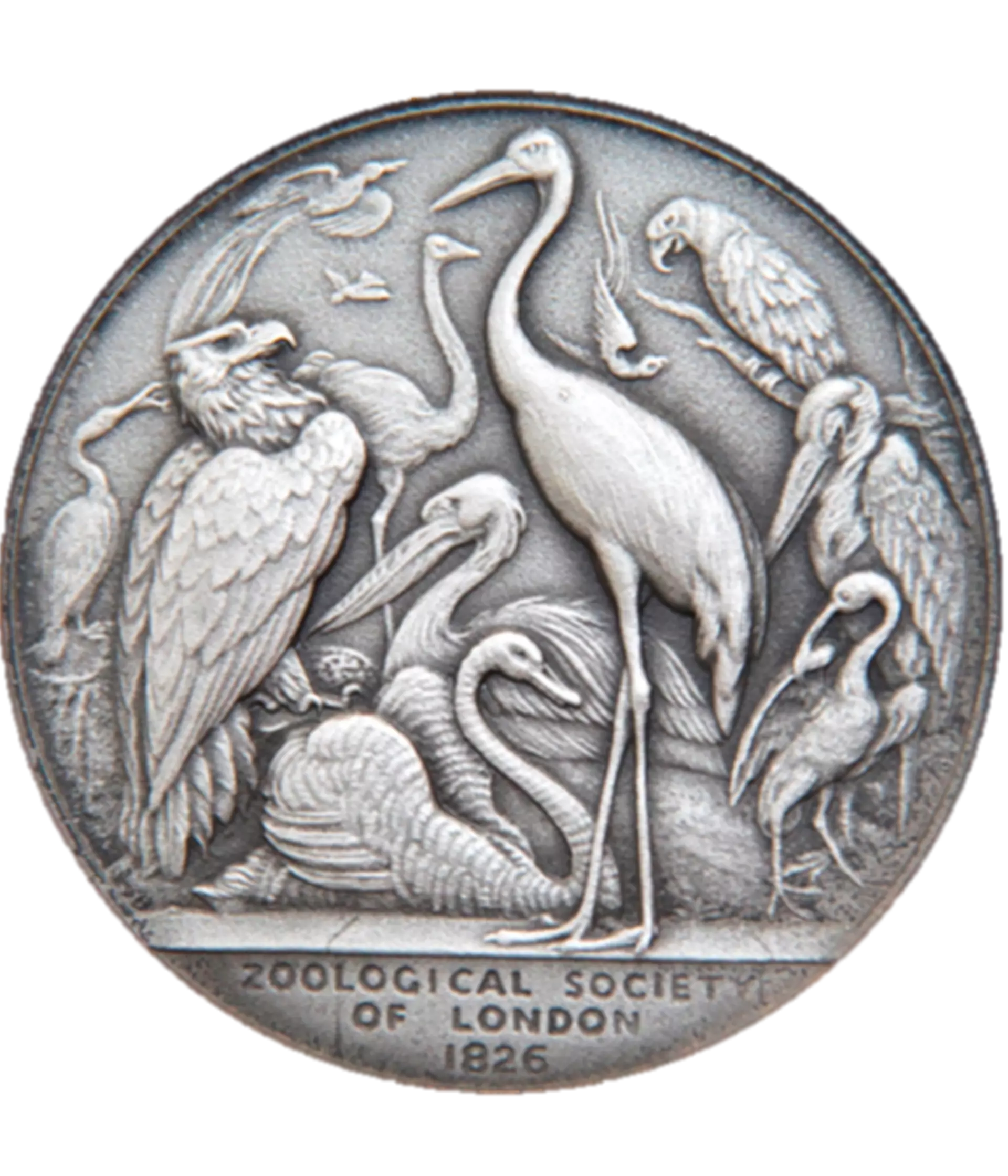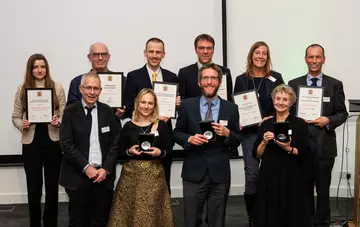
ZSL
Zoological Society of London
Each year, ZSL recognises outstanding achievements and contributions made in zoology and conservation science through its awards programme.
These achievements were celebrated and the winners officially announced at ZSL's Awards Celebration Event, which took place on 10th December 2024, hosted by ZSL President Professor Sir Jim Smith.

This year's winners demonstrate the breadth of exceptional work across science and conservation that these awards celebrate. Find out more about their achievements below.
ZSL Charles Darwin Award and Marsh Prize
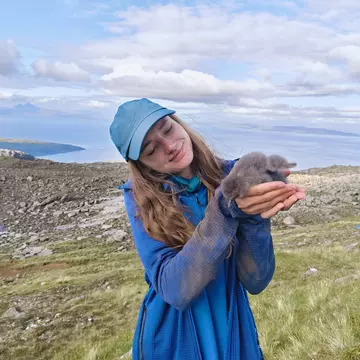
The ZSLCharles Darwin Award and Marsh Prize is awarded for the best undergraduate project submitted by a university in the UK. This year’s award is presented to Gwennan Hughes, University of Exeter, for her project “Disruptive colouration delays antipredator escape responses in ground-foraging songbirds”.
In this study, Gwennan tested whether barring patterns allow raptors to approach closer to potential prey before being detected. Gwennan developed an elegant experiment to infer perceived predation risk in small passerines. Her results show that barring does indeed allow raptors to approach closer to potential prey before being detected. The results are well contextualised within the literature, and throughout her research Gwennan showed outstanding initiative and independence, and exceptional scientific maturity for an undergraduate.
ZSL Thomas Henry Huxley Award and Marsh Prize

The ZSL Thomas Henry Huxley Award and Marsh Prize is awarded for the best PhD thesis submitted by a university in the UK. This year’s award is presented to Josh Arbon, University of Exeter, for his thesis “Social competence, information-use and cognition in jackdaws”.
For his PhD research, Josh developed multiple, novel, approaches to understand how social life generates uncertainty, how cognition can reduce this uncertainty, and how cognition and social structure co-evolve. Using jackdaws as a model system, Josh showed that animals can learn to adjust their social associations strategically, and that adults can learn to use juveniles as sources of information, with adults learning to tolerate juveniles, rather than attempting to displace them. Josh’s research also showed that through naturally occurring competition and generalisation, social learning results in behaviour diversity, not cultural conformity. These findings have major implications for our understanding of social environments that are conducive to the evolution of cognition and cooperation, and call for a re-think of core theory. The mark of a truly excellent PhD student is when their expertise and knowledge supersede that of their supervisors, and Josh’s supervisors concur that he truly succeeded in that respect.
ZSL Scientific Medal is awarded for outstanding contributions by an early career researcher. This year awarded to two candidates:
Professor Laura Ross, University of Edinburgh
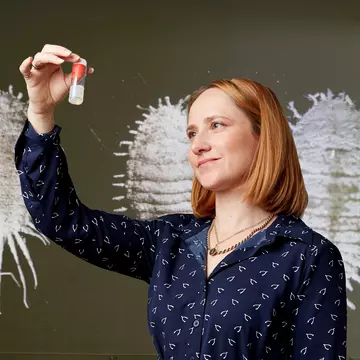
Laura is an evolutionary biologist who has made many key contributions to our current understanding of the evolution and evolutionary consequences of unusual reproductive strategies and inheritance in animals. Although model systems are enormously valuable to our understanding of animal evolution, they will only take us so far if we are to fully understand the breadth of the natural world. Laura’s body of work shows that focusing on unusual biology in non-model species, such as fungus gnats and mealybugs, can also provide important insights into the fundamental drivers of the diversity of life. Laura’s work also has important societal impacts, as it informs control strategies for economically important insect pests that have alternative reproductive strategies.
The outputs of Laura’s work are impressive, including over 40 publications in which she has advanced our understanding of the evolution of eusociality and epigenetic modification in insect reproduction, and of unusual inheritance systems in arthropod clades.
Dr Tim Newbold, University College London

Tim led the first comprehensive research to understand the effects of land-use change on biodiversity worldwide, notably in seminal papers published in Nature and Science in 2015 and 2016, respectively. The methods and data used in these papers have quickly become international standards in their field and are used by researchers worldwide. Tim has also transformed our understanding of the global biodiversity impacts of climate change, providing the first assessment of the combined impacts of climate change and land-use change, including research on how biodiversity changes will impact human societies.
The significance and impact of Tim’s research is highlighted by the fact that almost all major international environmental reports of recent years have featured his results, including the WWF Living Planet Reports, the Convention on Biological Diversity’s Global Biodiversity Outlook, the United Nations Global Environment Outlook, the reports of the Intergovernmental Panel on Climate Change, and the UK Government Dasgupta Review on the Economics of Biodiversity.
ZSL Silver Medal
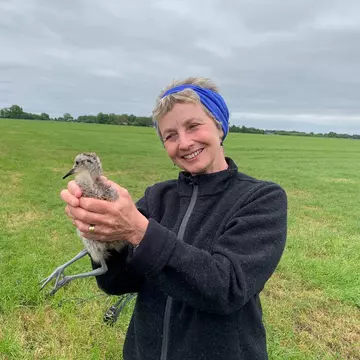
The ZSL Silver Medal is awarded for contributions to the understanding and appreciation of zoology, including public education in natural history, and wildlife conservation. This year’s medal is awarded to Mary Colwell. Mary is an award-winning environmentalist, campaigner, fund-raiser, journalist and author, most notably for her book Curlew Moon, which chronicled a walk Mary did across the UK to raise awareness for the plight of this iconic, Red Listed bird for which the UK is a globally important breeding ground. Mary is Chair of the UK’s Curlew Recovery Project, an umbrella group comprising nine other organisations involved in Curlew conservation, and she has gone to extraordinary lengths to protect the species.
Aside from her many achievements and incredible energy in saving curlews, Mary has a longstanding commitment to improving access and education for young people to the natural world. In particular, she has led a project to successfully lobby for a Natural History GCSE to be added to the national curriculum, which will enable young people to explore the world by learning about organisms and environments, and gain a deeper knowledge of the natural world around them.
Marsh Award for Conservation Biology

The ZSL Marsh Award for Conservation Biology is awarded for fundamental science that has significant impact on conservation biology. This year’s winner is Professor Matthew Fisher, Imperial College London. Matthew is a driving force on research into chytridiomycosis as a threat to amphibian biodiversity. Early research on chytrid was largely led by researchers with taxonomic, veterinary or ecological expertise, and Mat’s knowledge on fungi and epidemiology was much sought after. Mat’s many research achievements include: the first description of the evolutionary history of Batrachochytrium dendrobatidis; the Out of Asia hypotheses and identification of the genetic variants behind global amphibian declines; the identification of a new species of Batrachochytrium responsible for salamander declines across Europe; and the implementation of mitigation strategies for chytridiomycosis.
Mat has continuously worked with ZSL on amphibian infectious disease research, most recently driving ZSL’s work on amphibian microbiomes for the management of disease. Mat also ensured that ZSL was partnered with the Leverhulme Centre for the Holobiont, which focuses on the development of strategies for managing amphibian microbiomes for amphibian health. Not only is Mat an exceptional scientist, he is also renowned for his citizenship, generosity and mentorship.
Marsh Award for Marine and Freshwater Conservation

The ZSL Marsh Award for Marine and Freshwater Conservation is awarded for fundamental research which has had significant impact on marine and freshwater conservation. This year’s award is presented to Dr Nicole Esteban, University of Swansea. Nicole is a researcher with a background in marine protected area management, which means she has both a theoretical and practical understanding of marine conservation. Her work tracking green and hawksbill turtles in the Chagos Archipelago is widely used by the British and Mauritian Governments to drive the designation of key conservation zones, and her research is used by the Seychelles Government to designate marine conservation zones.
Nicole also pioneers the use of innovative technology, deploying remote cameras that record turtle nesting for many months. This technology is set to transform the quality of status assessments for sea turtles that nest in remote, hard to access areas. Nicole has been at the forefront of efforts to assess the impacts of climate change on nesting sea turtles, including feminisation of hatchling production and rising sea levels causing loss of nesting beaches. Alongside her impactful research Nicole is a generous collaborator and mentor.
ZSL Clarivate Award
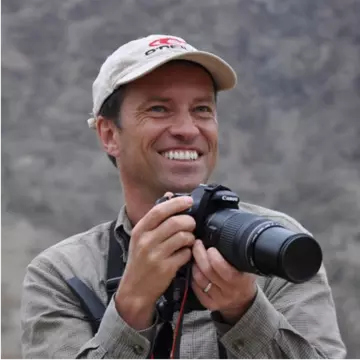
The ZSL Clarivate Award for Communicating Zoology is awarded for a communication of a zoological nature that has an outstanding impact on a general audience. The impact may be measured in terms of outstanding quality, novelty, innovation or accessibility for a wide audience. We are delighted to present this year’s award to Professor Tim Blackburn, University College London, for his book The Jewel Box.
In this wonderful book, Tim uses moths found in moth traps on the roof of his London home as the basis for explaining numerous ecological and evolutionary processes. Tim’s passion for moths is contagious, and his descriptions of the many diverse and mysterious species he discovers shine a light on these exquisite ‘jewels’. As well as inspiring nature enthusiasts who might be looking for a new hobby, Tim elegantly shows how moths are connected to the entire web of life. The Jewel Box is beautifully written, and a thoroughly joyful read for biologists and non-biologists alike.
We are grateful to our sponsors, the Marsh Charitable Trust and Clarivate, for generously supporting ZSL's awards programme.
Honorary Fellowship
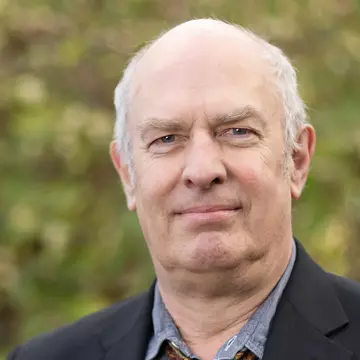
ZSL's highest honour, Honorary Fellowship, acknowledges individuals' contributions and commitment towards our vision for a world where wildlife thrives.
Martin is best known as a political cartoonist for The Guardian, and author of numerous books, including poetry and prose, memoir, and cartoon adaptations of literature. In addition to adding joy and bemusement through his cartoons, Martin has made many significant contributions to ZSL, through his lifetime involvement with the Society, beginning in the 1960s, when Martin was a member of London Zoo’s Young Zoologist’s Club, the famous XYZ Club. Most notably, Martin was instrumental in efforts to stop London Zoo from closing. In 1991 a large public meeting was called at Senate House, which was supposed to rubber stamp Council’s decision to close the Zoo. Following Martin’s intervention from the floor against the closure, he was invited to join what became the “Reform Group”, which successfully campaigned to keep the Zoo open. Martin served his first term on ZSL’s Council in 1992. In the years since, apart from mandatory stand-down years, Martin has served over 30 years on Council alongside numerous other Trustees, five Honorary Secretaries, and six Honorary Presidents; an unsurpassable record! In recognition of his unwavering, loyal support, and for his true and practical commitment, it is our pleasure to present Martin Rowson with the ZSL Honorary Fellowship.
